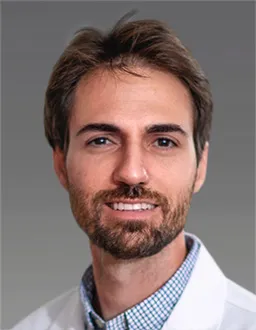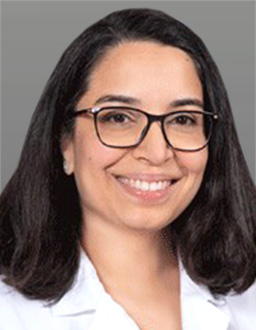Fetal Care and Surgery Center (FCSC) | Perinatal Surgery Fellowship
The Perinatal Surgery Fellowship at the Boston Children’s Fetal Care and Surgery Center (FCSC) is designed to provide OB-GYN and pediatric surgery fellows with the skills necessary to become experts in the diagnosis and treatment of fetus and neonate disorders, as well as in the care of pregnant people. Fellows will primarily assess patients at the center under the supervision of faculty specializing in maternal-fetal medicine.
About the Fetal Care and Surgery Center (FCSC)
The Fetal Care and Surgery Center (FCSC), in affiliation with Brigham and Women’s Hospital, offers advanced diagnostics, surgical and medical treatments, and counseling for pregnancies with confirmed or suspected fetal congenital anomalies. The Maternal Fetal Care Center also collaborates closely with maternal-fetal specialists at Beth Israel Deaconess Medical Center and Tufts Medical Center.
Course objectives
At the completion of the fetal surgery fellowship, participants will be expected to demonstrate acceptable knowledge and understanding of the following:
- Fetal and neonatal anatomy, physiology, and pathology
- Know the relevant anatomic structures of the fetus and neonate, as well as the relevant physiology (including the fetal and neonatal differences) and pathophysiology of the relevant congenital anomalies
- Understand the embryology relevant to the specific congenital malformations treated
- Know the detailed landmarks and visual appearance of the fetal and neonatal structures visualized during fetoscopy, laryngoscopy, thoracoscopy, and laparoscopy
- Maternal anatomy
- Know the relevant anatomic structures of the pregnant abdomen and pelvis, including the bony anatomy, muscles, blood vessels, lymphatics, and nerves
- Understand the embryology of the female reproductive organs and pelvic viscera
- Know the layers, vascular supply, and nerve supply
- Have appropriate knowledge of the reproductive organs in the maternal and fetal surgical and/or obstetric procedures covered in this fellowship, including the intra-abdominal organs, the retroperitoneum, and the retroperitoneal spaces of the pelvis
- Know the course of the ureter, and the major vessels through the middle and lower abdomen and pelvis
- Know the structures of the pelvic floor and their relationship to structures visualized at laparoscopy and fetoscopy
- Instrumentation (system-based practice)
- Understand alternative video cameras, light sources, and carbon dioxide and fluid insufflation techniques
- Be familiar with instruments to access the peritoneal and thoracic cavities, including the Veress needle and trocars
- Be familiar with instruments to access the uterine cavity, including the trocars, cannulae, and materials used to access the amniotic cavity, using the Seldinger technique
- Know the principles behind various optical instruments, micro- and macro-laparoscopes, and fetoscopes
- Be familiar with forceps for grasping, holding, manipulating, dissecting, puncturing, delivering devices, and tying knots
- Thoroughly understand the physics behind electrosurgical instrumentations, unipolar and bipolar forceps, needles, probes, and lasers
- Be familiar with irrigators/aspirators and irrigating fluids
- Be able to assemble and troubleshoot equipment and devices commonly used in fetal surgery
- Operative laparoscopy and fetoscopy
- Know the role of laparoscopy, thoracoscopy, and fetoscopy in diagnosing and managing fetal and neonatal conditions
- Understand the advantages and disadvantages of surgical approaches (fetoscopic, thoracoscopic, laparoscopic, and open surgery) in obstetrics and neonatal surgery
- Know the instruments used in laparoscopic and fetoscopic access to the peritoneal cavity and amniotic cavity, and instruments used in thoracoscopy
- Be aware of approaches to establish a pneumoperitoneum in both the pregnant person and neonate (i.e., entry sites)
- Be familiar with open and closed laparoscopy in maternal and neonatal patients, thoracoscopy in neonatal and fetal patients, and fetoscopic techniques
- Understand the disposable and reusable instruments
- Understand the power sources used in laparoscopic and fetoscopic surgery
- Know the anatomic landmarks of the maternal anterior abdominal wall to safely introduce the principal and accessory trocars and manipulate instrumentation
- Know the anatomic landmarks of the fetus and neonate to safely introduce the principal and accessory trocars, and manipulate instrumentation for fetoscopy, thoracoscopy, and laparoscopy
- Know the anatomic landmarks of the abdominal/pelvic cavity and its organs
- Comprehensive care of patients referred to the Maternal Fetal Care Center for evaluation or fetal intervention (to include practice consultation, diagnosis, discussion of options [surgical and otherwise], and pre- and postoperative care.)
- Understand tocolytic drugs and their side effects
- Understand the use of pain management during pregnancy
- Understand the importance of a multidisciplinary approach in this field
At the completion of the fellowship, fellows will have been offered training in some or all of the following as appropriate:
- Evaluation of complex fetal congenital anomalies by fetal ultrasound and MRI
- Laser ablation of placental anastomoses in the treatment of twin-twin transfusion syndrome, selective intra-uterine growth restriction, vasa previa, and placental chorioangioma
- Laparoscopic approach to the uterus for fetoscopic surgery and maternal-fetal surgery
- Ultrasound-guided shunt placement in the fetal thorax or bladder
- Intrauterine fetal blood transfusion for fetal anemia
- Ultrasound-guided amnioreduction, vesicocentesis, and thoracocentesis
- Radiofrequency ablation, microwave, and/or cord coagulation in treating complicated monochorionic multiple gestations
- Ex utero intrapartum treatment procedure (EXIT) to perform various interventions to stabilize the fetus during the transition to neonatal life
- Hysterotomy for providing access to a fetus for open fetal surgery in an ongoing pregnancy
- Preoperative and postoperative management of patients undergoing fetal surgical procedures
- Fetal endotracheal occlusion (FETO) procedure for congenital diaphragmatic hernia management
- Minimally invasive fetal intervention techniques in IACUC-approved animal models of congenital diaphragmatic hernia and neural tube defect. Minimally invasive fetal intervention techniques in Institutional Review Board (IRB)-approved protocols treating congenital diaphragmatic hernia and neural tube defect
- Neonatal management of gastroschisis, omphalocele, esophageal atresia, congenital diaphragmatic hernia, neural tube defects, lung masses, sacrococcygeal tumors, neck masses, and cleft lip and palate
- Operative techniques for placing a silo for gastroschisis, creating a colostomy, and vascular access
- Maternal-fetal anesthesia ethical considerations in managing the fetus as a patient
- Experimental surgery in a CO2-filled uterus with the development of further experimental fetal surgical programs such as neural tube defect repair and gastroschisis repair under full IRB and FDA oversight
Core curriculum
A faculty advisor will be assigned to help guide clinical training, research, and overall career development. Fellows can participate in the academic lectures and conferences offered through the Maternal Fetal Care Center programs at Boston Children’s Hospital, Massachusetts General Hospital, Beth Israel Deaconess Medical Center, and Tufts Medical Center.
Prerequisites
For U.S. medical school graduate applicants:
- Successful completion of a four-year Accreditation Council for Graduate Medical Education (ACGME)-accredited obstetrics and gynecology residency or successful completion of a five-year ACGME-accredited general surgery residency
- Successful completion of a three-year American Board of Obstetrics & Gynecology– or ACGME-approved maternal-fetal medicine fellowship or successful completion of a two-year ACGME-approved pediatric surgery
- Eligibility for a medical license in Massachusetts is required
- A strong interest in clinical and translational research is encouraged
For IMG applicants:
- Successful completion of an obstetrics and gynecology or general surgery residency
- Two years of training in advanced ultrasound and management of high-risk pregnancy or two years of training in pediatric surgery
- Experience and/or training in a recognized foreign fetal medicine program
- Educational Commission for Foreign Medical Graduates (ECFMG) board certification
- Eligibility for a medical license in Massachusetts is required
- A strong interest in clinical and translational research is encouraged
Application information
Interested candidates should submit the following required materials:
- A comprehensive CV
- At least two letters of recommendation
- A personal statement
All three components are required for an application to be considered complete. Incomplete applications will not be reviewed.
Application materials must be submitted by Oct. 1, 2025, to be considered for a September 2026 start.
Candidates will be contacted regarding interviews mid-October 2025.
Program leadership
Program director
Eyal Krispin, MD
Email: eyal.krispin@childrens.harvard.edu
Associate program director
Mohak Mhatre, MD
Email: mohak.mhatre@childrens.harvard.edu



